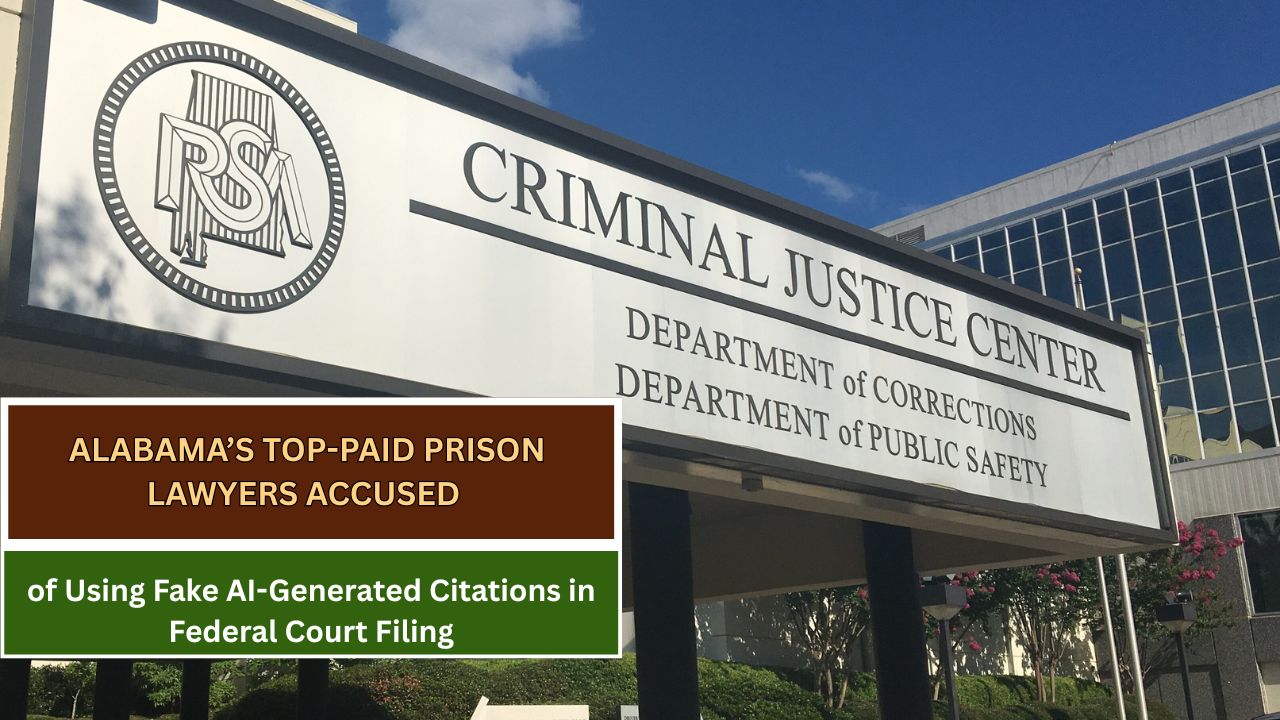William Lunsford, a prominent attorney at Butler Snow’s Huntsville office, is Alabama’s go-to lawyer for defending its prison system and officials. Since 2020, the state has paid him $42 million for his work, and more payments are expected.
He’s considered essential. One member of Alabama’s Contract Review Committee once remarked, “Mr. Lunsford is basically a government agency at this point.”
That’s why it came as a surprise when, last week, attorneys for an injured inmate claimed that Lunsford and other lawyers representing former prison commissioner Jeff Dunn had submitted a court filing that cited non-existent legal cases.
“Defendant (Dunn’s lawyers) appears to have wholly invented case citations in his Motion for Leave, possibly through the use of generative artificial intelligence,” wrote attorney Jamilah Mensah in a court filing.
Mensah represents Frankie Johnson, an inmate suing Dunn after enduring repeated assaults inside Alabama’s prison system.
Backed by diligent research, Mensah identified five citations in the motion that were either fabricated or misrepresented. One example: a citation that was supposed to support arguments about deposing incarcerated individuals turned out to be a 1939 case about a speeding ticket.
U.S. District Judge Anna Manasco took the accusations seriously. “In light of the seriousness of the accusation, the court has conducted independent searches for each allegedly fabricated citation, to no avail,” she wrote.
She ordered the four attorneys who signed the filing—Lunsford, Daniel Chism, Matthew B. Reeves, and William J. Cranford—as well as the Butler Snow law firm, to explain why they shouldn’t be sanctioned for presenting false information to the court.
They were instructed to provide sworn statements detailing how the questionable motion was created, including their roles in its drafting and review. A hearing was scheduled for Wednesday.
Lunsford and Chism attempted to avoid the hearing, stating they hadn’t worked on the motion and had scheduling conflicts. Lunsford noted he was due in Macon, Georgia, for a separate hearing the next day.
Judge Manasco wasn’t moved. “The hearing before Judge Treadwell is set for Thursday, May 22, 2025, at 9:00 a.m. ET – 23 hours after the show cause hearing in this Case,” she wrote. “The May 21, 2025 show cause hearing will last no longer than an hour.” She denied their request to be excused.
She also ordered the Butler Snow attorneys to inform Alabama’s prison system of her ruling and directed the court clerk to notify chief judges across the state’s federal districts. Alabama Attorney General Steve Marshall was also informed, as these attorneys are involved in similar litigation statewide.
Judge Manasco has since paused Frankie Johnson’s lawsuit until further notice.
Notably, it was Marshall who removed the state prison system’s in-house attorneys from defending the agency, paving the way for private firms—now allegedly using AI-generated content—to earn millions from public funds.
This development is significant. Fabricating legal citations is a serious breach. AI can assist, but it cannot replace due diligence or ethical legal work.
Meanwhile, Frankie Johnson remains central to this case. He alleges he was stabbed nine times in two different Alabama prisons. Later, while restrained in shackles and handcuffs during a therapy session, he was stabbed again.
Alabama’s prison system has long been criticized as inhumane. The U.S. Department of Justice, under both the Trump and Biden administrations, has declared it dangerously overcrowded, underfunded, and unconstitutionally violent—with rampant incidents of rape, death, and assault.
No amount of artificial intelligence can justify that.
This article has been carefully fact-checked by our editorial team to ensure accuracy and eliminate any misleading information. We are committed to maintaining the highest standards of integrity in our content.

Outside of work, he enjoys playing chess, following cricket, and writing short stories. His commitment to integrity and in-depth analysis strengthens OTE News’ mission of providing trustworthy journalism.



